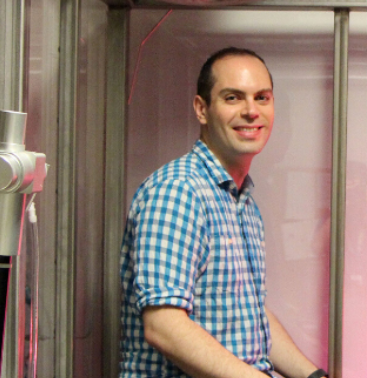
Dr. Chris Carlsten
Researcher, Air Quality & Lung Health
Dr. Chris Carlsten is a Professor and Head of Respiratory of Medicine at the Department of Medicine at UBC, and holds the endowed Chair in Occupational and Environmental Lung Disease. He is the Director of the Centre for Lung Health (including Legacy for Airway Health) and an award-winning researcher. He also holds adjunct positions at the Peter Wall Institute for Advanced Studies, the UBC School of Population and Public Health and the James Hogg Research Centre. As director of the Occupational Lung Disease Clinic at The Lung Centre (Vancouver General Hospital), he welcomes patients with concerns regarding occupational or environmental exposures contributing to respiratory disease including asthma, COPD, interstitial lung disease, cancer, and pleural disease. Dr. Carlsten is a BC Lung Foundation grant recipient.
Dr. Chris Carlsten's work on traffic-related pollution is proving how vulnerable our genetic machinery can be to air pollution.
What’s the focus of your research?
Our research focuses on the relationship between air pollution and public health. We know air pollution can make it hard to breathe. We also know it can increase someone’s blood pressure and heart rate. Now one of our most recent studies suggests traffic-related air pollution – specifically breathing diesel fumes - can trigger other significant changes. Just two hours of exposure to diesel exhaust fumes can lead to fundamental health-related changes in biology by switching some genes on, while switching others off.
How did your study work?
We put volunteers in a polycarbonate-enclosed booth — about the size of a standard bathroom — while breathing in diluted and aged exhaust fumes that are about equal to the air quality along a Beijing highway, or under certain conditions at busy ports, rail yards, mines and industrial sites. We studied how such exposure affected the chemical “coating” that attaches to many parts of a person’s DNA. That carbon-hydrogen coating, called methylation, can silence or dampen a gene, preventing it from producing a protein – sometimes to a person’s benefit, sometimes not. How these changes in gene expression translate to health is the next step for researchers. But this study shows how vulnerable our genetic machinery can be to air pollution, and that changes are taking place even if there are no obvious symptoms.
How may your findings ultimately improve lives?
Usually when we look at the effects of air pollution, we measure things that are clinically obvious – air flow, blood pressure, heart rhythm. But asthma, higher blood pressure or arrhythmia might just be the gradual accumulation of epigenetic changes. So we’ve revealed a window into how these long-term problems arise.
Carlsten’s team, having catalogued the changes along the entire human genome, is now sharing its data with scientists who are further exploring the function of specific genes.


